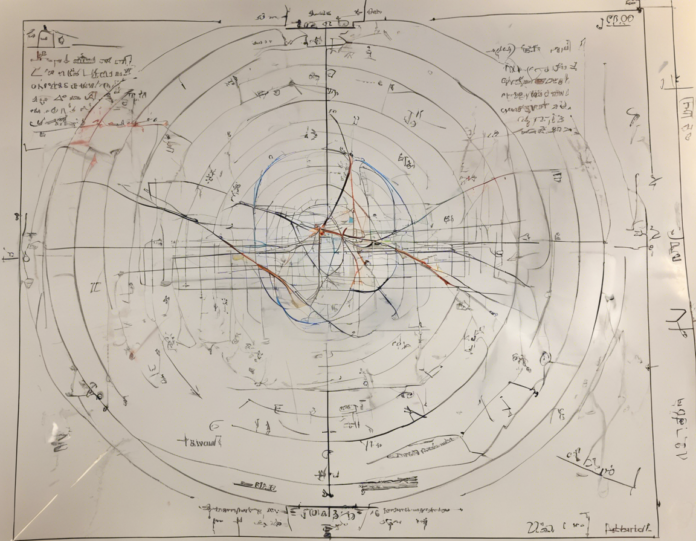Are you gearing up for your upcoming 2024 physics model paper and looking for some tips and tricks to help you ace it with confidence? Whether you’re a high school student preparing for a final exam or a college student gearing up for a competitive test, having a solid preparation strategy can make a significant difference in your performance. In this comprehensive guide, we will delve into some effective tips and tricks to help you prepare effectively for your 2024 physics model paper.
Understanding the Syllabus
Before diving into your study sessions, it’s crucial to have a clear understanding of the syllabus. Familiarize yourself with the topics that will be covered in the exam to ensure that you allocate your study time efficiently. Make a list of all the subjects and subtopics that you need to focus on, and prioritize them based on your comfort level and current proficiency.
Organizing Your Study Material
Having well-organized study material can streamline your preparation process and make it more manageable. Create a study schedule that allocates specific time slots for each topic. Organize your notes, textbooks, reference materials, and past papers in a systematic manner so that you can easily access them when needed.
Practice, Practice, Practice
One of the most effective ways to prepare for a physics model paper is through regular practice. Solve numerical problems, work on conceptual questions, and practice diagrams to enhance your understanding of the subject. The more you practice, the more comfortable you will become with the different types of questions that may appear in the exam.
Utilize Online Resources
In today’s digital age, there is a vast array of online resources available to help students prepare for their exams. Take advantage of online tutorials, educational videos, and interactive quizzes to supplement your learning. These resources can provide additional explanations, examples, and practice questions to reinforce your understanding of the concepts.
Seek Clarification
If you come across any challenging topics or concepts that you find difficult to grasp, don’t hesitate to seek clarification. Reach out to your teachers, tutors, or peers for help. Discussing your doubts and queries with others can provide you with a fresh perspective and clarity on the subject matter.
Time Management
Time management is key when it comes to exam preparation. Allocate sufficient time for each topic based on its weightage in the exam. Practice mock tests and time-bound exercises to improve your speed and accuracy in answering questions. Remember to take short breaks in between study sessions to keep your mind fresh and focused.
Stay Healthy and Hydrated
In the midst of exam preparation, it’s essential to take care of your health and well-being. Get an adequate amount of sleep, eat nutritious meals, and stay hydrated. Physical well-being plays a crucial role in cognitive function, memory retention, and overall academic performance.
Test Your Knowledge
Periodically test your knowledge by taking sample papers or practice tests. This will help you assess your understanding of the concepts, identify weak areas, and track your progress over time. Analyze your mistakes and work on improving in those areas to strengthen your preparation.
Revision Strategy
As the exam date approaches, focus on revising the key concepts, formulas, and topics. Create summary notes or flashcards to aid in quick revision. Review your notes regularly and make sure to revisit the topics that you find challenging. A solid revision strategy can boost your confidence and retention of information.
Stay Positive and Confident
Lastly, maintain a positive attitude and stay confident throughout your preparation. Believe in your abilities and hard work. Visualize your success and stay motivated to give your best effort in the exam. Remember, a positive mindset can go a long way in helping you perform well under pressure.
Frequently Asked Questions (FAQs)
Q: How can I effectively balance studying for my physics model paper with other subjects?
A: Prioritize your subjects based on their exam dates and weightage. Allocate specific time slots for each subject and create a study schedule that allows you to cover all topics effectively.
Q: Is it better to study alone or in a group for the physics model paper?
A: Study preferences vary among individuals. Some students find studying alone more effective, while others benefit from group study sessions for discussions and peer learning. Experiment with both methods to determine what works best for you.
Q: How should I approach numerical problems in physics?
A: Break down the problem into smaller steps, identify the given information, and apply the relevant formulas. Practice solving a variety of numerical problems to build your problem-solving skills and speed.
Q: What is the significance of revising past papers for exam preparation?
A: Revising past papers helps you familiarize yourself with the exam pattern, question types, and difficulty level. It can also highlight areas where you may need more practice and boost your confidence for the actual exam.
Q: How can I stay motivated during long study sessions?
A: Break down your study sessions into manageable chunks, set achievable goals, and reward yourself for completing tasks. Stay motivated by visualizing your success, tracking your progress, and staying connected with a study buddy for support.
By implementing these tips and tricks in your exam preparation, you can enhance your understanding of physics concepts, improve your problem-solving skills, and approach your 2024 physics model paper with confidence and competence. Remember, consistent effort, practice, and a positive mindset are key to achieving success in your exams. Good luck!












